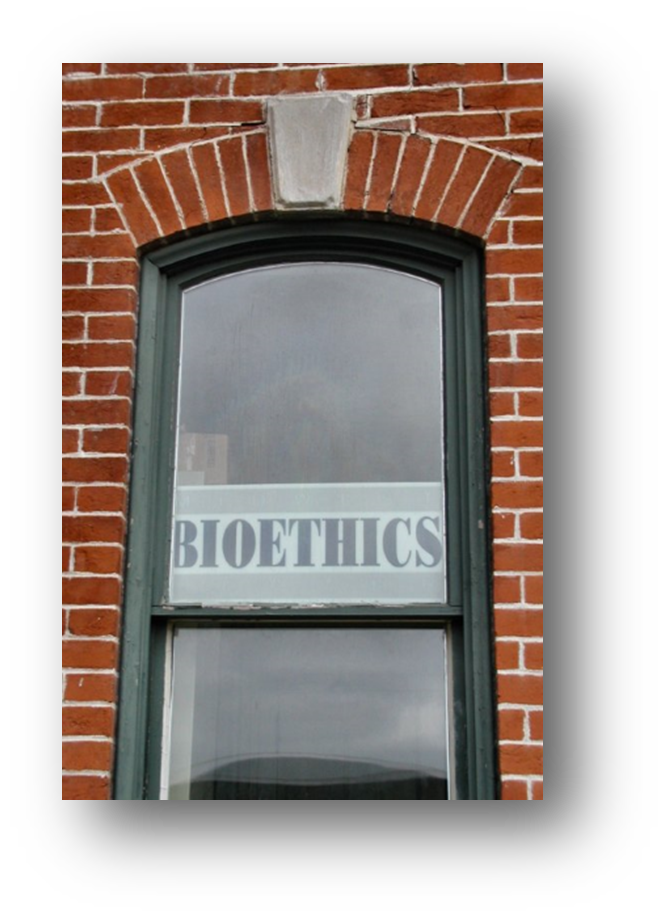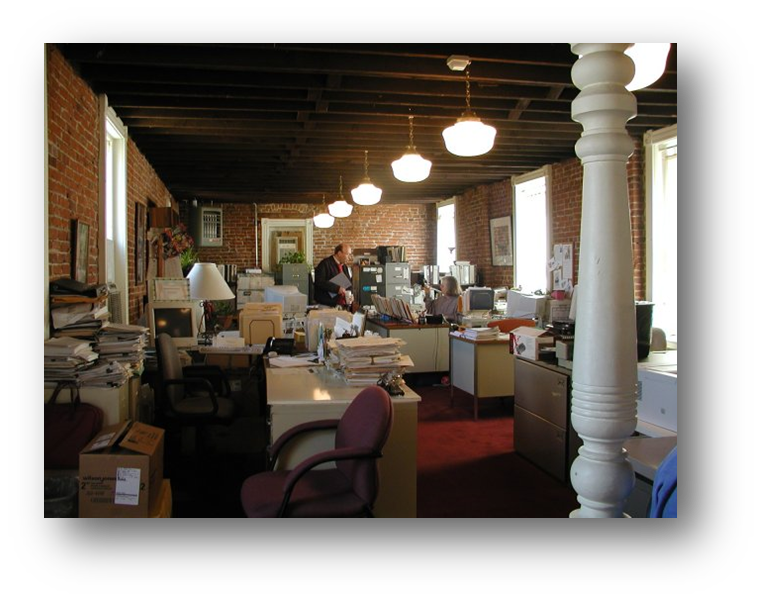1984 to 2024
By Trudi Galblum
Director of Marketing and Communications, Center for Practical Bioethics
When the year 1984 is mentioned, most people think about George Orwell’s dystopian novel.
At the Center for Practical Bioethics, we think about it as the year that the Center was founded, along with more than a dozen other nonprofit organizations and foundations* that were started during that remarkably creative and generous decade in Kansas City’s civic history.
Right Mission, Right Time, Right Environment
The founders of the Center for Practical Bioethics – Mary Beth Blake, a lawyer, Hans Uffelmann, a professor of philosophy and medicine, and Karen Ritchie, a physician – landed on the right mission at the right time and chose Myra Christopher to lead the Midwest Bioethics Center.
The mission, then and now, is to raise and respond to ethical issues in health and healthcare. The issue that instigated it all was care at the end of life. The timing coincided with growing concerns about how life-sustaining technology was being used to care for seriously ill patients. The environment was abundant with civic leaders, philanthropists and volunteers.
Fortunately, many of them recognized the need to support an organization that could grapple with everything from difficult private decisions made in clinical settings to all kinds of controversies in health and healthcare from birth to the end of life.
Getting Practical
They called the organization they founded in 1984 the Midwest Bioethics Center. Twenty years later the name no longer seemed to be a good fit. The Center’s pioneering work in advance care planning and the development of hospital ethics committees was expanding beyond the Midwest. Its practical approach to bioethics distinguished it from virtually all other bioethics centers at the time.
What did “practical” bioethics look like in those early years?
You generally wouldn’t have found staff focused on research, although they published and disseminated numerous papers and guidelines. More likely, you would have found them at the bedsides of patients consulting with families and providers using the principles and tools of bioethics to decide what “should” be done given what “could” be done. Or traveling to hospitals throughout the region to help establish and train ethics committees. Or developing advance care planning resources and presenting educational programs in the community about how to use them. Or working with “citizen leaders” to find ways to change the way chronic pain is perceived, judged and treated.
In other words, they were on the ground applying bioethics to real-life challenges. Which, in 2008, led them to adopt a new name, the Center for Practical Bioethics.
Raising and Responding
These days the Center does much of what it has always done. We just do it differently, in different ways and different contexts. The throughline in all of our work is that it’s not just about raising ethical issues in health and healthcare. It’s about raising and responding. Taking direct action. Solving real dilemmas. Implementing better procedures. Changing real lives.
The Center has always responded to issues concerning health equity and population health. Now, we are creating a toolkit for convening people from diverse backgrounds to participate in a process called “deliberative democracy” to problem-solve in search of collective solutions. The goal through pilot testing in Kansas and Missouri is to refine the toolkit for use by communities around the country.
The Center has always responded to patients and providers struggling to find answers to increasingly hard questions in medicine. Now we do it by offering an array of ethics services to providers nationwide, ranging from clinical ethics consultations, participation on ethics committees, presenting workshops, assistance with charting, interdisciplinary rounding and addressing moral distress to policy development and more.
Often, the Center raises issues before they’re even on others’ radar. Take the use of artificial intelligence in healthcare. The Center was prescient in 2019 when it gathered more than three dozen innovators and thought leaders from Kansas City’s health entities to examine various concerns regarding AI in healthcare and to propose interventions. Today, led by a 20-member international Advisory Committee, the Center is responding to these concerns by creating and testing process improvement tools, offering education and training, and helping to build executive level support within institutions.
We can only imagine 40 years from now what ethical issues in health and healthcare will look like. But one thing we can be sure of is that they will be beyond anything we can imagine today, and that Kansas City, the region and the nation will be better prepared to respond to them because of practical bioethics.
* Community LINC, CASA of Jackson County, CASA of Johnson and Wyandotte Counties, Francis Family Foundation, Good Samaritan Project, Greater Kansas City Community Foundation, Health Forward Foundation, Kansas City Friends of Alvin Ailey, Kansas City Hospice and Palliative Care, Kansas City Jazz Ambassadors, Muriel McBrien Kauffman Foundation, PKD Foundation, Powell Gardens, reStart, Inc., SAVE, Inc. and Unbound.
Trudi Galblum
Director of Marketing and Communications
Center for Practical Bioethics





